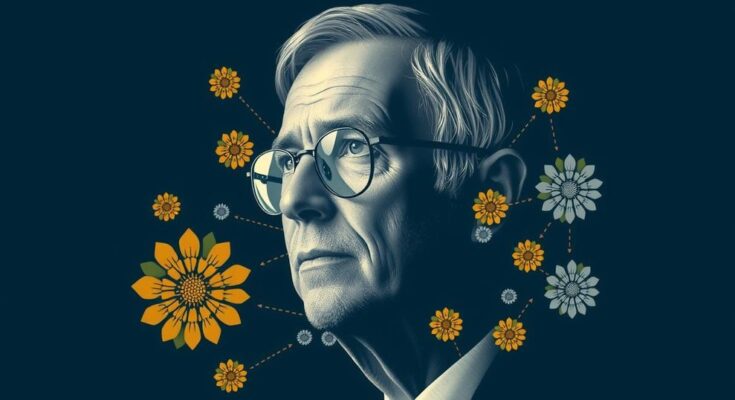Daniel Kahneman, Nobel laureate in economics, revolutionized our understanding of decision-making and human wellbeing, shifting the focus of public policy towards measuring life satisfaction. His collaboration with Ed Diener established effective metrics for wellbeing, influencing policymakers globally. As countries embrace these insights, Kahneman’s work promotes a new era of evaluating success through the lens of human happiness, rather than purely economic indicators.
In 2002, Daniel Kahneman, a psychologist, was awarded the Nobel Prize in Economic Sciences for his groundbreaking research alongside Amos Tversky, which challenged the conventional view of human rationality in decision-making. Their work revealed profound insights into how people’s choices could be swayed by the framing of options and the innate fear of loss, fundamentally reshaping our understanding of economic behavior. Kahneman emphasized that true assessment of value should focus on how decisions impact human wellbeing, advocating for the measurement of life satisfaction as a crucial policymaking metric. With the pioneering efforts of Ed Diener in subjective wellbeing metrics, Kahneman’s influence led to the integration of these measures into official statistics, beginning with initiatives in the UK under Prime Minister David Cameron. The movement toward prioritizing wellbeing in public policy gained momentum in the EU and OECD, demonstrating its potential to redefine success in governance. Various studies and parameters have been proposed, including the innovative ‘day reconstruction method’ which captures the nuances of daily experiences, shifting the narrative towards a more holistic view of happiness and life satisfaction. Despite rigorous discussions on optimal measurement, Kahneman’s adaptable approach highlighted the importance of memory and subjective evaluations in understanding wellbeing. His legacy continues to inspire policymakers and economists, emphasizing that mere financial metrics cannot encapsulate the intricate tapestry of human experience. The call for a greater focus on wellbeing in policy design heralds a future where happiness might become as quantifiable as traditional economic indicators, reshaping society towards a more compassionate and understanding paradigm. In the spirit of Kahneman’s work, the world teeters on the brink of a renaissance in evaluating economic and societal success, as researchers tirelessly pursue insights into the profound intersection of human experience and decision-making.
The article revolves around the significant contributions of Daniel Kahneman to the field of economics through his psychology background, particularly his insights into human decision-making and wellbeing. Kahneman’s research, alongside Tversky, fundamentally challenged traditional economic models that viewed individuals as rational actors. By shifting the focus to how policies affect people’s wellbeing, Kahneman laid groundwork for reinterpreting success in public policy, encouraging measures of life satisfaction rather than purely economic factors. This evolution has led to broader integration of wellbeing considerations in official statistics and international policy recommendations, changing the narrative around governance and social achievement.
Daniel Kahneman’s research has profoundly influenced both economic theory and public policy by prioritizing human wellbeing over traditional metrics. His work encourages a paradigm shift towards measuring success through the lens of life satisfaction, emphasizing the importance of memory and subjective experiences in understanding wellbeing. As nations begin to embrace these insights, the potential emerges for a future where human happiness remains at the forefront of socio-economic assessments, driven by the compelling evidence and legacy left by Kahneman.
Original Source: www.economicsobservatory.com



